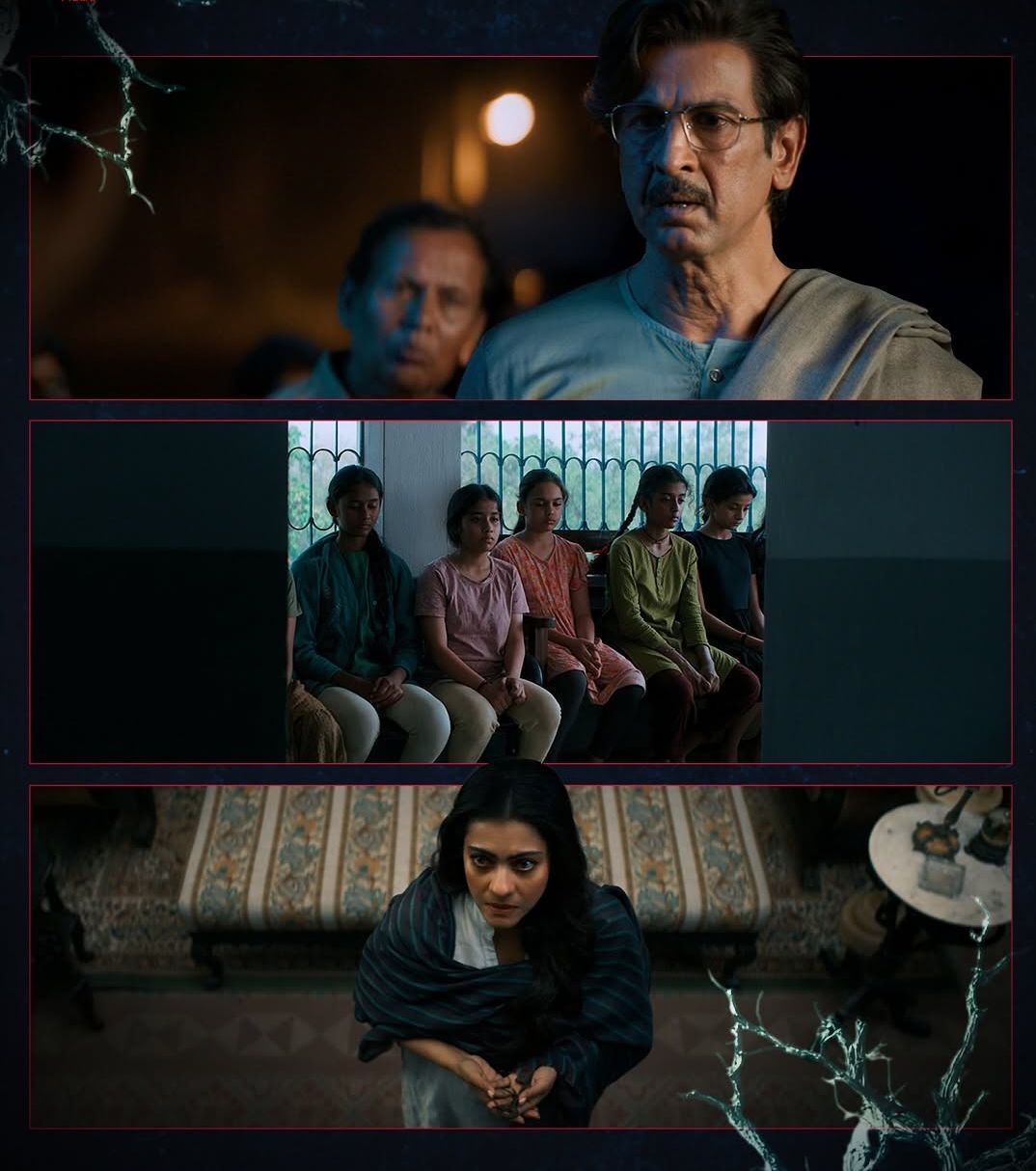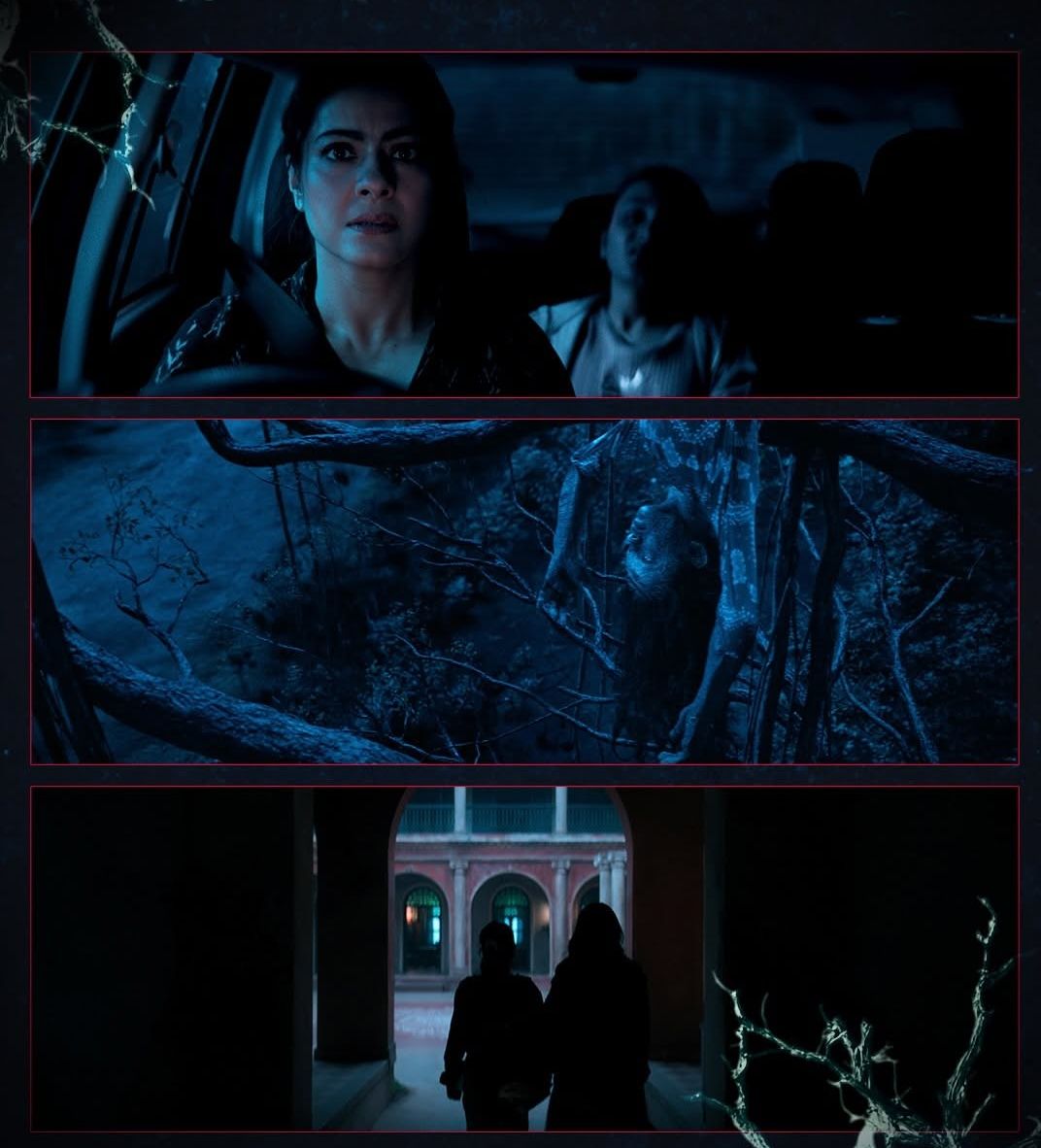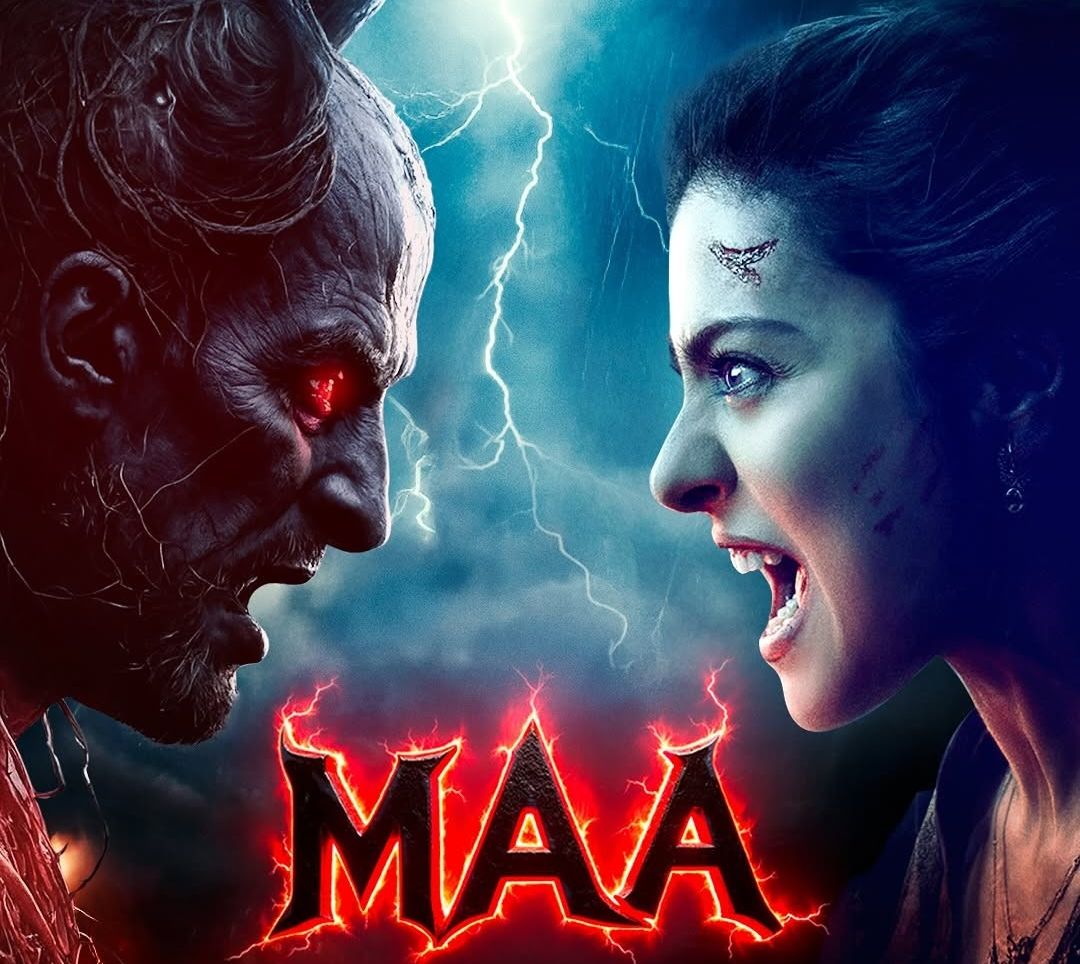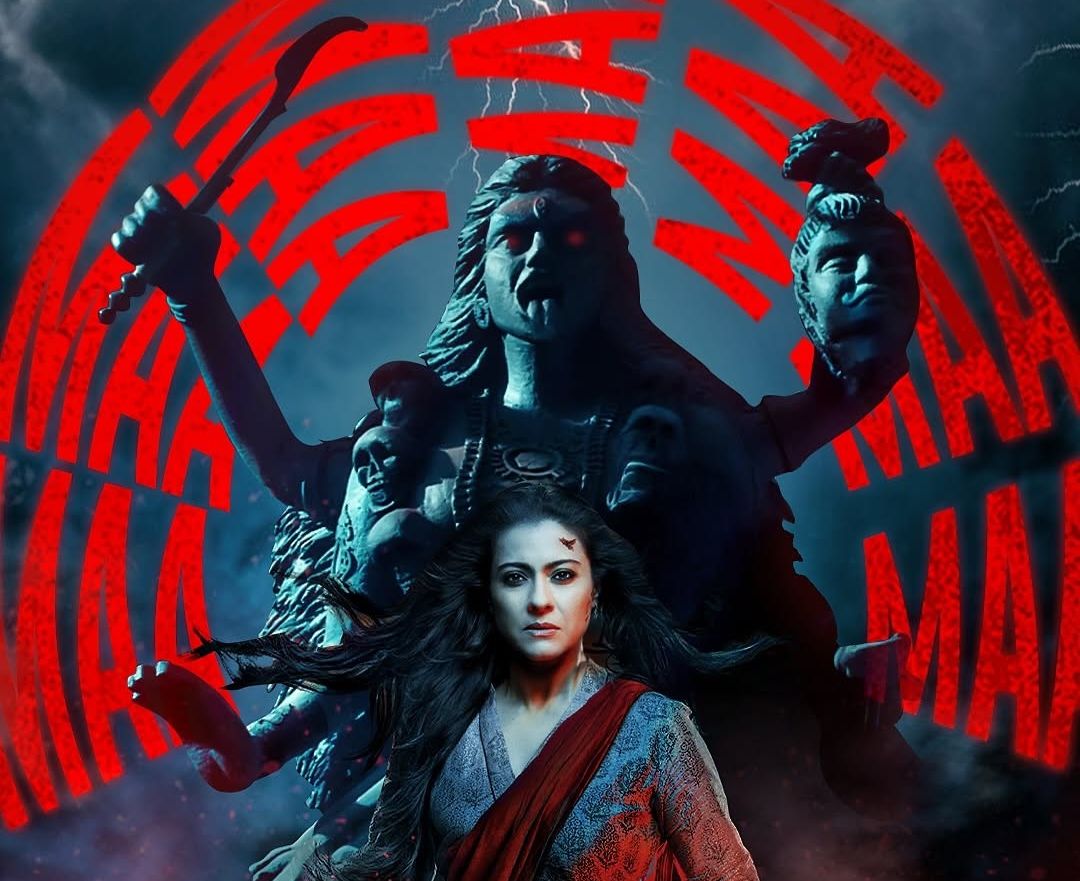In an exclusive interview with Eastern Eye, Kajol pulls back the curtain on her most daring role yet. Forget the dimples and that signature bindi for a moment. Kajol, the powerhouse we know for fiery roles and infectious energy, is stepping into chilling new territory. Her upcoming film, Maa, which hits screens on 27 June, isn’t built around cheap jump scares. It’s a raw look at the everyday fears that haunt parents, especially mothers. Chatting with her felt less like a fluff piece and more like an honest heart-to-heart.
- YouTube youtu.be
“Scary? Absolutely. Necessary? Without a doubt.”
Kajol wastes no time explaining what makes Maa stand out. “We’re tackling things mainstream cinema tiptoes around,” she says. “Child safety. The constant pressure of raising kids. The unspoken worries when you have a daughter. Even menstruation.” She lets each topic hang in the air before adding, “That’s exactly what drew me to it. It’s a gripping horror story, yes, but it’s also a chance to sneak in conversations most of us avoid.”
Her hope however is simple: people might not dissect every theme consciously, but they’ll walk away questioning what we accept as “normal.”

A horror newcomer finds her groove
Fans know Kajol for her loud performances, energy and fiery roles. In Maa, though, her character radiates a quiet, simmering intensity. Did she have to unlearn her signature style? "Not unlearn," Kajol clarified, "but I was a total horror newbie!" She confessed she rarely watches the genre. "I walked in blind. I had no idea how emotionally and physically draining it would be." The biggest surprise? Finding the right pitch. "Horror has its own frequency. My director, Vishal Furia, kept gently nudging me, 'Ma’am, this is horror. You need to sync with the audience's fear, there are things happening behind."

Three decades in: Embracing freedom
With almost thirty years on screen and sky-high expectations, taking on something so different might sound daunting. Not to Kajol. “Daunting? Nah. I feel free. Freer than most, honestly." She dismissed the idea of proving anything. "I’ve never been in the rat race. I don’t have that 'chase, chase, chase' ambition. I’m perfectly happy chilling at home for a year or two, waiting for something that truly sparks my interest." Ironically, her 33rd year is her busiest in two decades. "But it’s because I want to work, not because I have to. Work is part of my life, not my whole life. That balance is very important to me."

Behind the scenes: Producer’s hat
Wearing a producer's hat this time, was there a hill she was willing to die on creatively? Kajol quickly deflected praise. "Honestly, huge credit goes to Ajay Devgn. He was the driving force ensuring 'Maa' looks and feels premium. Ajay made sure Maa looks and sounds top notch,” she admits. “In today’s world, a movie must hit a certain visual and technical bar just to get noticed.” From VFX and music to the film’s overall vibe and marketing push, they poured everything into creating a polished experience. “We can’t wait to see how audiences react on the 27th.”

The Real Takeaway? Just Enjoy Yourself
So, what big truth does Maa hold up for viewers? Kajol cut through expectations: “It’s not a preachy film. You won’t leave thinking, ‘Oh, that was the lesson!’” Instead, she insists, “You might have more fun than you expect. This one sneaks up on you.” For her and Ajay, that’s the point: “We make films to be felt and savoured, not overanalysed. So, relax and feel it and just have a lot of fun.”

Mom vs. Movie Mom: That Instinct Is Unbreakable
Playing a mother pushed beyond reason in Maa. So, how did Kajol the real-life mom handle that? “Protecting your child is primal,” she says without hesitation. What shook her most was her character’s unyielding grit. “In reality, most of us would crumble under that kind of pressure. But she keeps going, even when all hope seems lost. That drive like that ‘I have to do something’ energy, that’s what I want everyone to take away.”

The final word?
Kajol’s journey with Maa is all about confronting societal shadows and embracing genre challenges she never saw coming. This is a film that confronts real fears head on, guided by a performer unafraid to strip away artifice. Ready to see Kajol like never before? Maa arrives 27 June.





